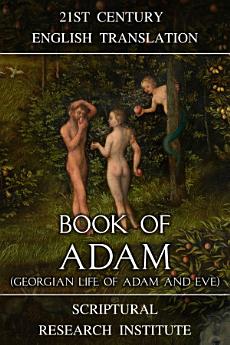Book of Adam
អំពីសៀវភៅអេឡិចត្រូនិកនេះ
The Book of Adam closely follows the Armenian and Latin versions of the text, so much so, that it is not clear how much was translated from Aramaic, and how much was translated from Armenian or Latin. Given the distance between Western Europe and Georgia, versus the proximity of Armenia, the Armenian Penitence of Adam is a more likely source than the Latin Life of Adam, however, the presence of a transliteration of Belial is a strong indicator of an Aramaic source in addition to the assumed Armenian primary source.
The Book of Adam translates the term found in the Latin and Armenian texts as ‘powers’ (virtutes / զաւրութիւնք), as dzala (ძალა), which translates as forces, powers, strengths, or might. This means the Georgian translator either agreed with the Armenian and Latin translators or was simply using one of their texts as a source. The obvious Hebrew or Aramaic term for them to have been translating was Elohim, which Jews have traditionally translated the term as ‘powers’ as it is a plural form, and Jews only worship one God. The Greek scholars that translated the Septuagint at the Library of Alexandria translated the word Elohim as either God or gods, depending on the context, however, there is no reason for the Latin, Armenian, or Georgian scholars to have been dependent on Greek translation norms when translating directly from Hebrew or Aramaic into Latin, Armenian, or Georgian. If the powers in the Latin, Armenian, and Georgian translations were the Elohim in the Semitic source-texts, then this would place the origin of the text to the Persian era at the latest, and almost certainly to the early-Persian era (525 to 330 BC), before Ezra the Scribe reformed Judaism, as there were two Elohim present, and therefore, these Elohim would have to date to the Samaritan priesthood from before the time of Ezra.











